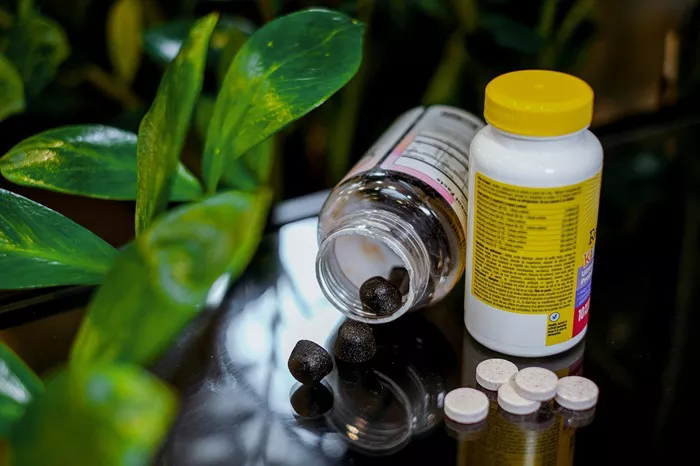A burgeoning class of probiotic supplements featuring Akkermansia muciniphila is drawing attention for its potential health benefits, including weight management, improved blood sugar levels, and enhanced production of GLP-1, the hormone mimicked by popular drugs such as Ozempic and Wegovy.
Akkermansia muciniphila is a type of beneficial bacteria that resides in the human gut microbiome. Research indicates that while most individuals harbor this bacterium, the concentration can vary significantly. Higher levels of Akkermansia are associated with lower rates of weight gain, obesity, and metabolic disorders, suggesting a correlation between its abundance and better health outcomes.
A Star Among Gut Microbes
Despite being one of numerous gut bacteria species, Akkermansia muciniphila has garnered significant scientific interest. A recent study referred to it as the “shining star of the gut flora,” while other researchers have hailed it as a “next-generation” probiotic with potential therapeutic benefits for chronic diseases.
Preliminary trials have suggested that Akkermansia supplements might lower blood sugar levels in individuals with type 2 diabetes and reduce inflammation in those who are overweight or obese. This has fueled the rise of a new market segment, with Pendulum Therapeutics emerging as a key player. The San Francisco-based company, which boasts high-profile endorsements including actress Halle Berry, offers several probiotic products containing Akkermansia. One of their most prominent offerings, targeted at diabetes management, retails for $165 per month.
Pendulum’s CEO and co-founder, Colleen Cutcliffe, emphasizes that Akkermansia differs from traditional probiotics such as lactobacillus and bifidobacteria, which are known to aid digestion. Instead, Akkermansia is positioned as a “next-generation” probiotic that impacts appetite, body weight, and metabolic health.
Scientific Skepticism and Potential Downsides
Despite the promising data, skepticism remains. Critics point out that the research on Akkermansia’s potential side effects is still limited. For example, a study in mice indicated that high levels of Akkermansia could increase susceptibility to certain pathogens. Additionally, an association between higher Akkermansia levels and neurological conditions such as Parkinson’s disease and multiple sclerosis raises questions about the bacterium’s role in these disorders.
Federico Rey, a microbiologist at the University of Wisconsin-Madison, acknowledges the robust evidence supporting Akkermansia’s metabolic benefits but cautions that potential risks should not be overlooked. “While there is substantial evidence suggesting Akkermansia benefits metabolic health, further research is needed to fully understand its impact on other conditions,” he said.
The Role of Akkermansia in Gut Health
Discovered in 2004, Akkermansia muciniphila plays a crucial role in the gut microbiome by consuming mucin, the protective mucus layer lining the intestines. This activity helps maintain a healthy intestinal barrier and stimulates the production of mucin, potentially mitigating inflammation and chronic conditions such as inflammatory bowel disease.
Moreover, Akkermansia promotes the secretion of GLP-1, a hormone that aids in satiety and sugar metabolism, thus offering protection against obesity and diabetes. Studies indicate that healthy adults typically have Akkermansia levels comprising 3 to 5 percent of their gut microbiota. Higher levels are generally seen in healthier individuals compared to those with obesity, diabetes, and metabolic disorders.
A randomized controlled trial published in BMJ Open Diabetes Research & Care demonstrated that Akkermansia supplementation resulted in better blood sugar control in individuals with type 2 diabetes compared to a control group.
Should You Consider Akkermansia Supplements?
For those looking to enhance gut health, diet remains the cornerstone of microbiome management. Sean Spencer, a gastroenterologist at Stanford University, suggests focusing on a diet rich in whole foods and fiber and incorporating fermented foods like yogurt, kimchi, and kombucha to improve gut microbiome diversity.
While Spencer acknowledges the potential benefits of Akkermansia supplements, he advises prioritizing dietary and lifestyle changes and consulting with healthcare providers regarding conventional diabetes treatments. Chris Damman, a gastroenterologist at the University of Washington Medical Center, expresses skepticism about the transformative effects of Akkermansia but concedes it might offer incremental benefits.
As research continues, it remains crucial to weigh the potential advantages of Akkermansia probiotics against the broader context of proven health strategies and interventions.
[inline_related_posts title=”You Might Be Interested In” title_align=”left” style=”list” number=”6″ align=”none” ids=”11396,11305,11301″ by=”categories” orderby=”rand” order=”DESC” hide_thumb=”no” thumb_right=”no” views=”no” date=”yes” grid_columns=”2″ post_type=”” tax=””]

































